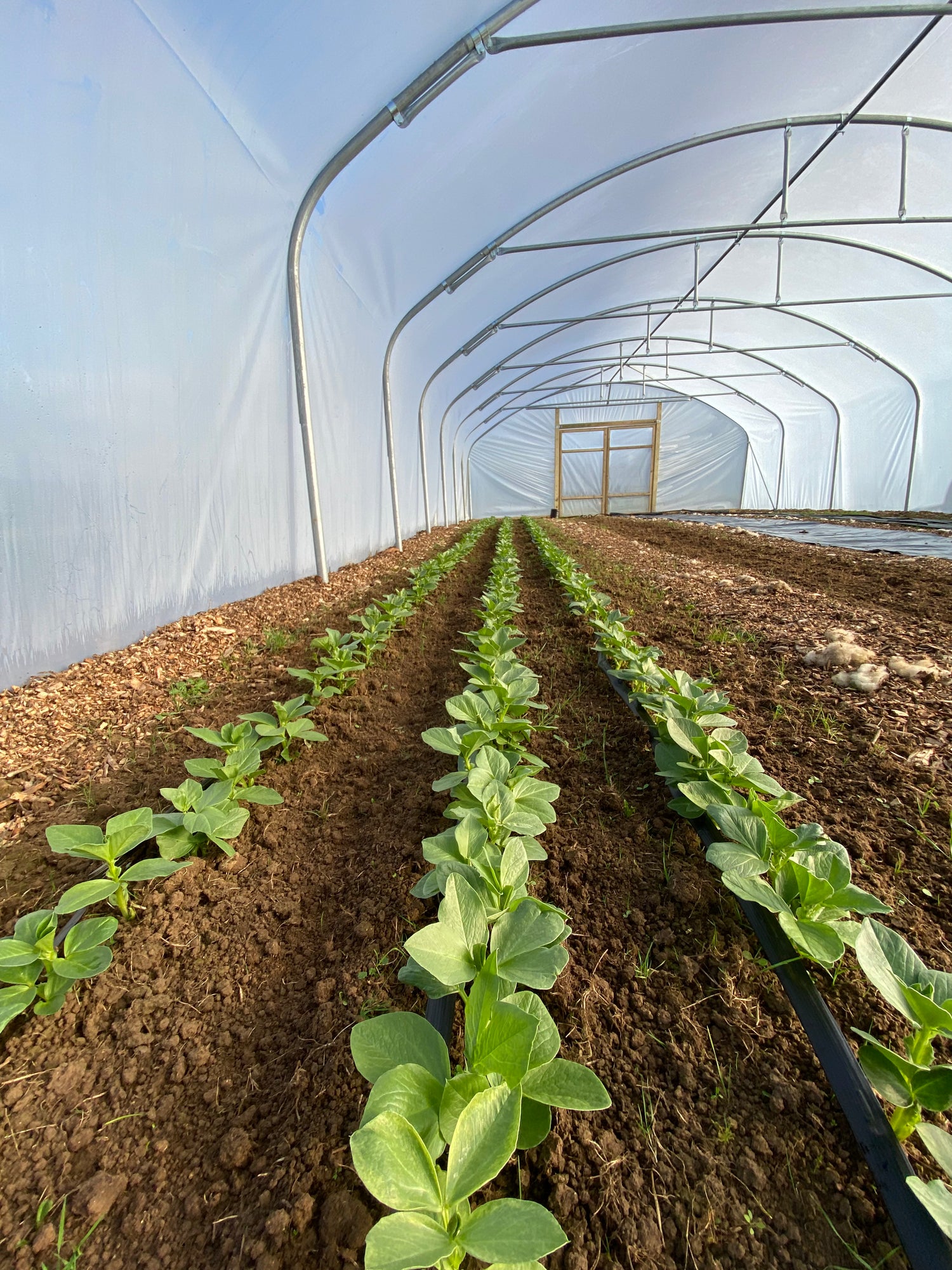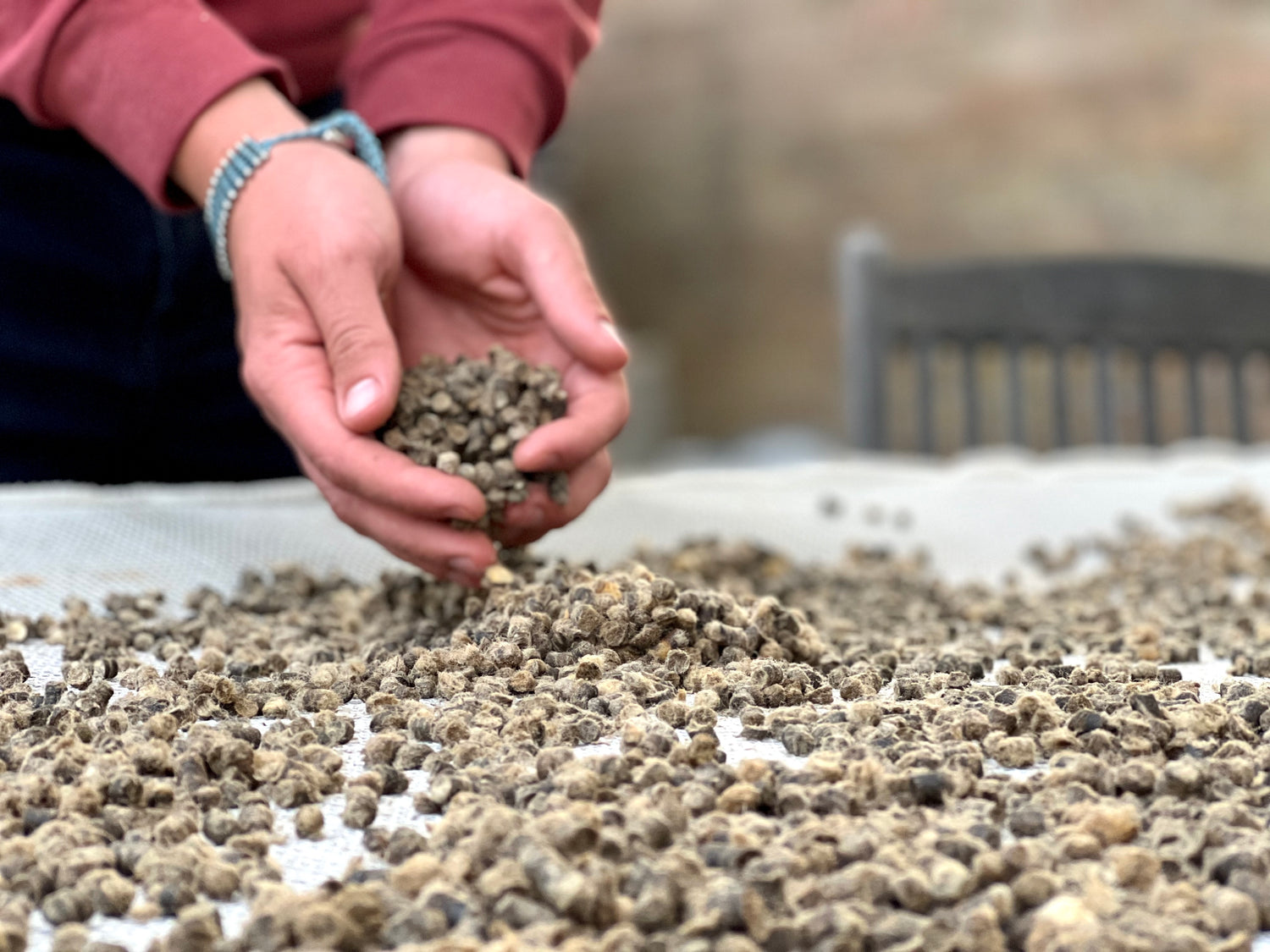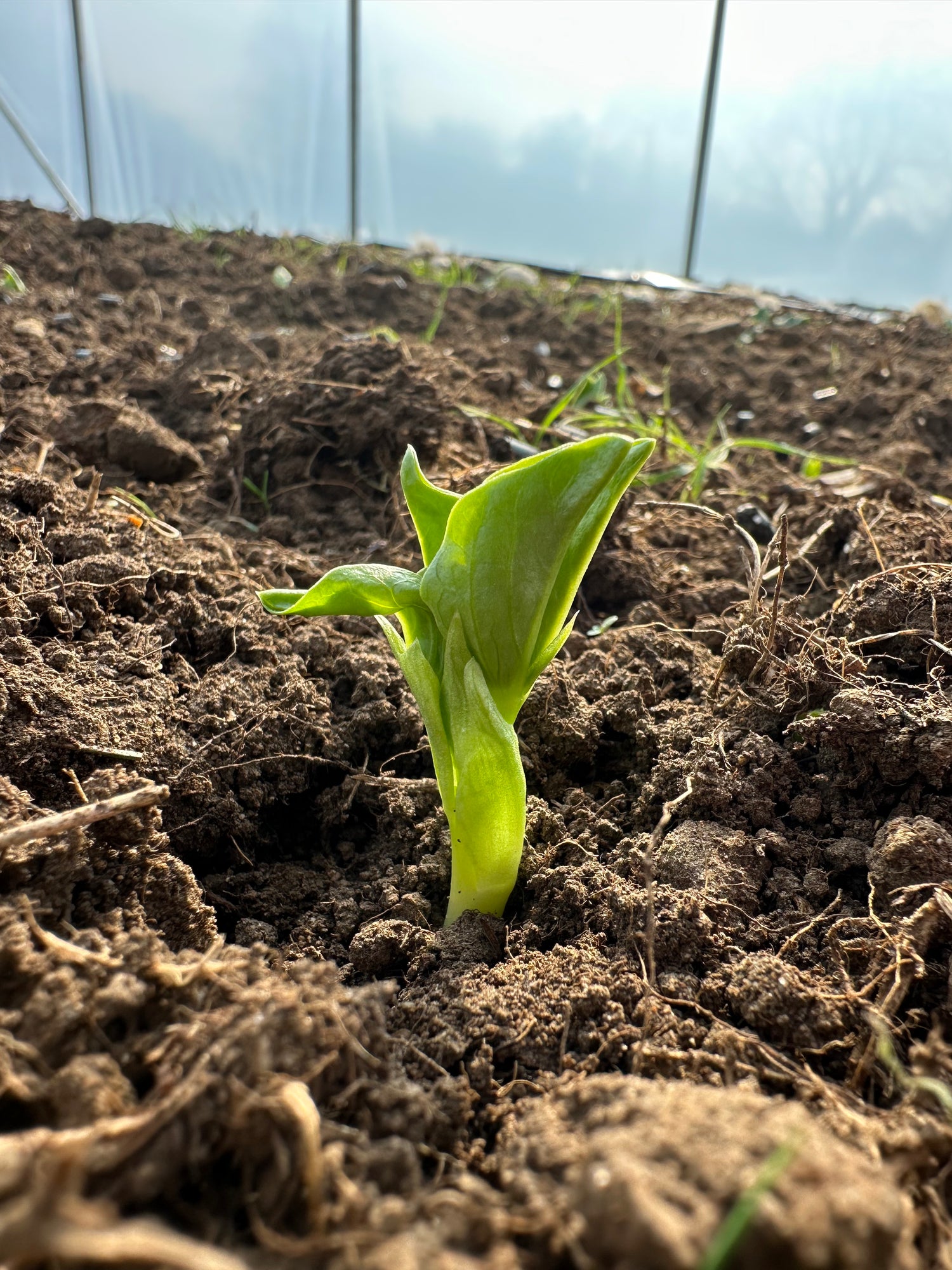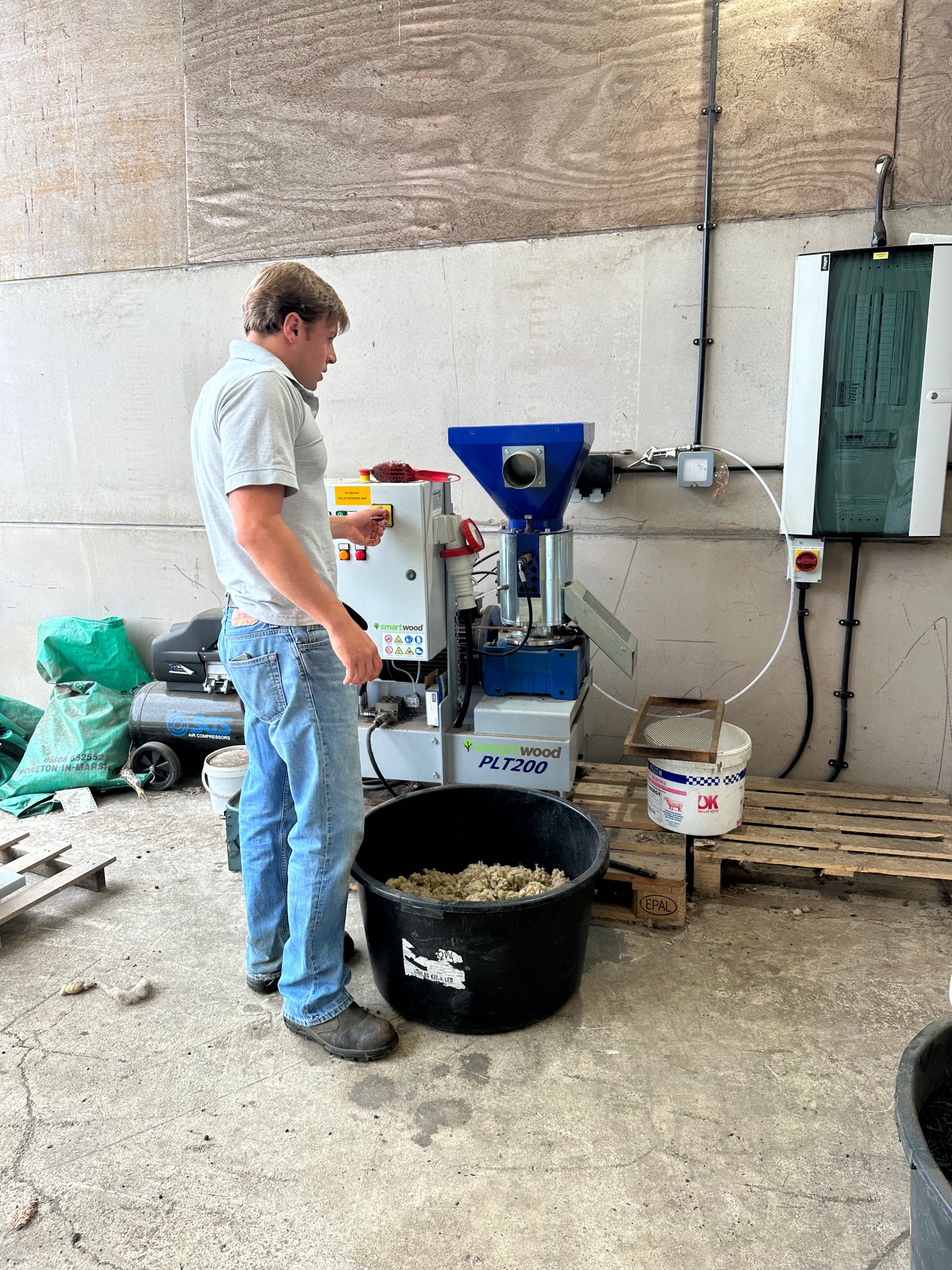Why Our Pellets?
Our pellets focus on improving your soil’s health naturally! Sustainably sourced and easy to use, it’s the simple way to elevate your garden as nature intended.

Feed the soil to feed your plants
Our natural fertilisers feed the microbes that call your soil “home”. The microbes break down the pellet releasing the nutrients for the plants to draw on. In return, plants produce exudates - natural sugars that feed microbes and strengthen the soil-plant partnership. This cycle builds healthier, more fertile soil each season, ensuring stronger plants and long-term soil resilience.

Sustainably sourced
We source our materials with sustainability and soil health in mind. Our straw comes from organic farms, our British sheep wool is ethically sourced, and our plant-based fertilizers are made from digestate, a byproduct of renewable energy production. With our kraft paper packaging and natural ingredients, we create a fully sustainable system that enriches soil, reduces waste, and supports chemical-free gardening.

Long Acting Fertiliser
Our fertilisers are long-acting. They release nutrients gradually to support healthy plant growth and improve soil over time. Unlike synthetic alternatives that provide a quick but short-lived boost, our natural formulations nourish soil life, enhance structure, and retain moisture, creating long-term benefits for both plants and the environment. With each application, our products help build healthier, more resilient soil, making sustainable gardening simple and effective.

How are they made?
We make all our pellets ourselves, right here on the farm, so we know exactly what goes into them. Our small pelleting plant handles everything from start to finish. First, we shred our raw materials before mixing them into our unique pellet blends. These then go through our pellet mill, where heat (100°C) and pressure naturally form them into nutrient-packed pellets. Once they’ve cooled, we pack them up and send them straight to your door, ready to get to work improving your soil.
